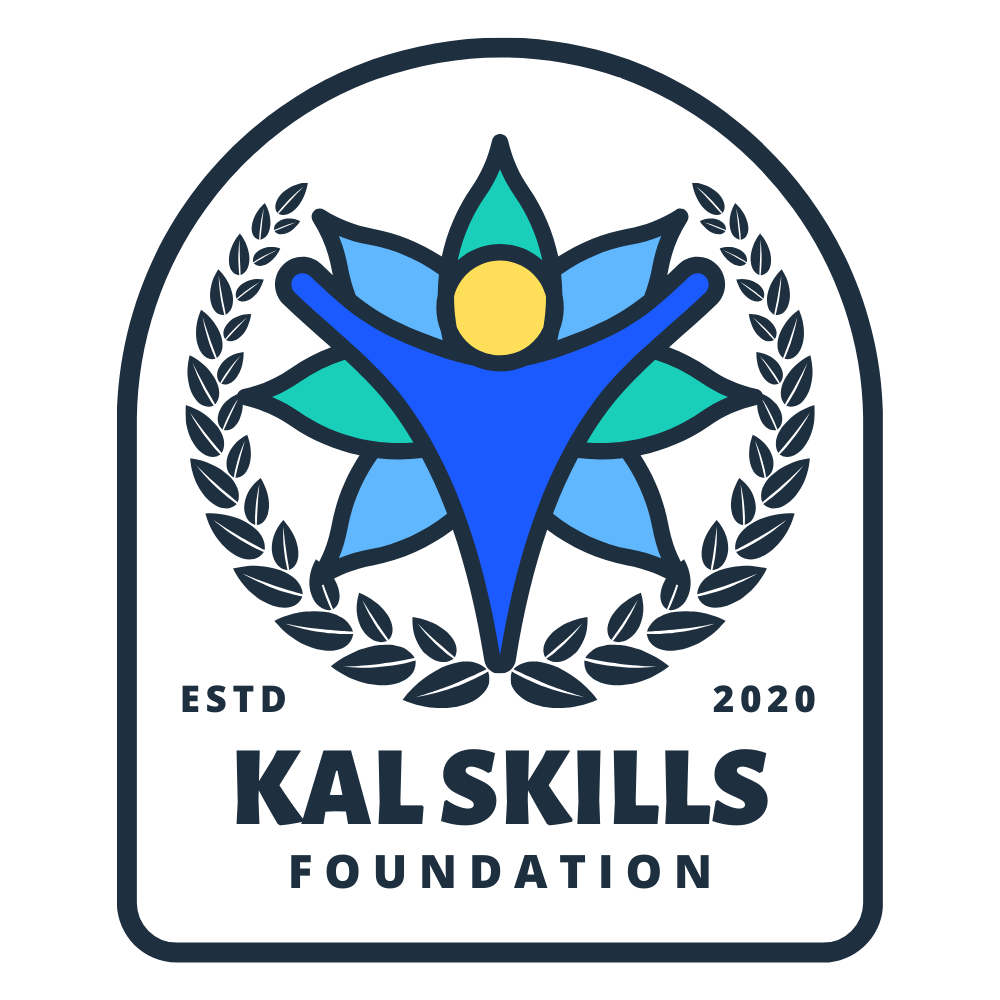Are you making the most of your job in a market where 48% of HR leaders see skills shortages as a big threat?
The Skill Building Framework is a guide that links personal growth with professional advancement. It’s key for reaching career success. In today’s fast world, keeping your skills sharp is crucial. This way, you avoid being stuck in old roles that many companies still have.
This framework also knows that a clear path for career growth is important. It helps keep the best talent and makes workplaces more appealing1. By using personal development plans, you can set a clear path to your career goals2.
Key Takeaways
- The Skill Building Framework merges personal and professional development for career success.
- Skills shortages present significant challenges in today’s job market.
- A clear career progression structure enhances employee engagement and retention.
- Implementing a Personal Development Plan (PDP) offers a structured approach to personal growth.
- Regular self-assessment and goal-setting are crucial for successful personal development.
- Utilizing a support network within your personal development journey can yield better results.
Understanding the Importance of Personal Development
Personal development is key to self-improvement, helping you grow your skills and self-awareness. It’s not just about career success; it also boosts your overall well-being3. Learning throughout your life is central to personal development, keeping you competitive in today’s fast world.
Emotional intelligence and good communication are crucial for building strong relationships and leadership skills4.
Studies show that those who focus on personal development are happier at work and more employable35. They set and reach goals better, feeling more confident and resilient3. This journey helps you keep your skills up to date with job demands.
Yet, personal development comes with its own set of challenges. Time, fear of failure, and changing motivation levels can hold you back3. Getting support from mentors is key to overcoming these hurdles3.
Defining Professional Growth in Today’s Job Market
Professional growth is key to your career path. Today’s fast-changing job market demands constant learning. A big 74 percent of workers say they can’t reach their full potential without growth chances6.
It’s crucial to keep up with job market trends and have both technical and soft skills. A Gartner study found 58 percent of employees need new skills to do their jobs well7.
Professional growth boosts your skills and job happiness. Companies that invest in their workers see better productivity and morale. For example, 94 percent of employees want to stay longer if their company helps them grow6.
Professional events offer great networking chances. These connections help you perform better and earn more. Harvard Business School Online’s courses saw 91 percent of participants benefiting, with 42 percent seeing a $17,000 salary boost7.
Key Skills for Personal Development
Finding the right skills to learn is key for personal growth. Skills like communication, leadership, problem-solving, and emotional intelligence are essential. They help you interact well and build strong relationships in both your personal and work life. Learning these skills can greatly boost your performance and that of your team.
A recent study found that IT, finance, and sales jobs in the US need about 17 skills each. This number is expected to grow8. It shows how important it is to keep learning both hard and soft skills. Skills like emotional intelligence and problem-solving are crucial for handling work challenges, no matter your role9.
Change management also requires a wide range of skills, including creativity, communication, and time management8. Employers look for people who are eager to keep learning and growing. By learning these skills, you’re ready for bigger roles and opportunities.
| Essential Skills | Importance | Examples |
|---|---|---|
| Communication | Promotes clarity and understanding | Active listening, public speaking |
| Leadership | Inspires and guides teams | Team coordination, performance management |
| Problem-solving | Enhances decision-making abilities | Critical analysis, resourcefulness |
| Emotional Intelligence | Improves interpersonal relationships | Empathy, self-regulation |
Creating a Personal Development Plan
A personal development plan is a detailed guide for personal growth. It helps improve skills and reach career goals. It starts with knowing what you want to achieve and why.
Step 1: Define Results and Motivation
The first step is to know what you want to achieve. Identify your goals and what drives you. Personal development plans help focus on growth and guide life changes10. Being clear about your goals helps keep you motivated.
Step 2: Determine Required Skills
Next, figure out the skills you need for your goals. Skills like public speaking and software proficiency can set you apart11. A good plan includes training, social learning, and hands-on experience10. This makes sure your learning matches your goals, making you more effective.
Step 3: Perform a Skills Self-assessment
Doing a skill assessment helps find your strengths and weaknesses. It’s important for personal growth11. Focusing on one skill at a time can lead to quick progress11. Regularly update your plan to keep it relevant to your changing needs10.
| Step | Description |
|---|---|
| Step 1 | Define desired results and identify motivation |
| Step 2 | Determine skills required for goals |
| Step 3 | Perform a comprehensive skills self-assessment |
The Link Between Personal and Professional Development
The connection between personal development and professional development is deep and crucial. Skills you learn in personal life often help you do better at work. For instance, leadership training improves both areas by giving you key skills for success in work and personal life12.
Good communication, a key part of leadership, builds trust and inspires others. It helps you connect deeply in both your work and personal life12. Also, negotiation skills from leadership training help you find agreements that work for everyone, whether at work or with family or contractors12.
Leadership training also boosts your problem-solving skills. This leads to creative solutions that help you reach your goals in both areas12. Studies show that personal success and professional achievement can go hand in hand when you work on these skills. In fact, 94% of employees want to stay with a company that helps them grow13.
As the job market changes, so do the skills needed. High-performing companies are now focusing on new skills to stay ahead13.
The U.S. Bureau of Labor Statistics found 11 million job openings, making professional development key to attracting talent14. Companies that invest in their employees see better morale and more innovation14. By constantly learning new skills, you grow personally and become more competent in many areas of life. Activities like communication simulations or daily problem-solving help you connect your personal and professional goals13.
What Is the Skill Building Framework?
The Skill Building Framework is a detailed structure for skills development in many industries. It helps organizations find key skills and improve employee abilities. This ensures workers are ready for their field’s challenges.
Overview of the SkillsUSA Framework
SkillsUSA leads in creating a skill building framework. It aims to grow skilled professionals who also engage in their communities. The framework makes sure skills match industry needs.
Skills-based hiring is becoming popular, showing it’s more effective than education in predicting job success15. Employers use this method to keep employees, as 77% of those who left said they wanted more career growth15. The SkillsUSA framework helps define key skills and prepares people for their careers.
This framework also helps fill talent gaps by moving people within the company. It organizes skills by job families, not just specific roles16. Companies like Boeing and Walmart support skills-based hiring, showing their commitment to diversity and opportunities15. The SkillsUSA framework is more than for personal growth; it’s a way to make companies stronger and more adaptable in a tough job market.
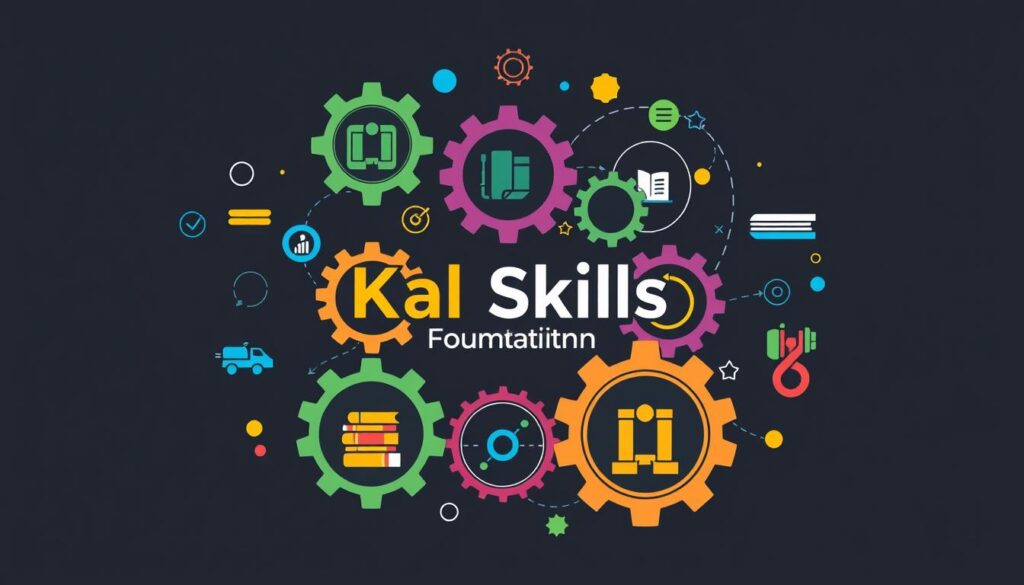
SMART Goals: A Methodology for Effective Skill Building
Using SMART goals is key for setting skills effectively. It gives a clear plan to improve your abilities. This method makes sure your goals are Specific, Measurable, Achievable, Relevant, and Time-Bound. It helps you grow skills needed in today’s fast-changing digital world17.
It’s also important to focus on soft skills like being adaptable and creative. These skills are vital for innovation and meet current training needs17.
Specific, Measurable, Achievable, Relevant, Time-Bound
Specific goals help you know what to do next. Measurable goals let you see how you’re doing. Achievable goals are realistic, so you don’t get discouraged18.
Relevant goals match your personal goals and what your company needs. Time-Bound goals make you work faster to meet your goals17.
A study showed that measuring learning’s impact is crucial. Working together on goals builds trust and teamwork18. Regular feedback helps you reach your SMART goals. Also, changing your skill focus to match new trends keeps you relevant17 and19.
| SMART Criteria | Description | Examples |
|---|---|---|
| Specific | Define clear, precise objectives | Increase sales by 20% |
| Measurable | Quantify goals for tracking | Measure customer satisfaction through surveys |
| Achievable | Ensure goals are realistic | Complete an online course in 8 weeks |
| Relevant | Align goals with broader objectives | Improve leadership skills for a management role |
| Time-Bound | Set deadlines for achievement | Launch project by the end of Q2 |
Using SMART goals changes how you set goals. It creates a clear path for growth and skill improvement. This method keeps you motivated and tracks your progress well1718, and19.
Methods of Professional Development
It’s key to grow your skills and move up in your career. You can do this through formal programs and networking. Both are vital for success in today’s job market.
Formal Development: Workshops and Online Learning
Workshops and online courses are great for learning new skills. Online courses are affordable and flexible, attracting many career seekers20. Workshops also improve teamwork and communication, important for success21.
Learning about creativity, critical thinking, and time management helps you handle complex work21.
Social Development: Networking and Mentorship
Having a strong professional network is crucial. Social media, like LinkedIn, is key for making new contacts20. Mentorship lets you learn from experts, helping you develop leadership and problem-solving skills21.
These interactions encourage ongoing learning and self-improvement. They keep you up-to-date with industry trends and tech20.
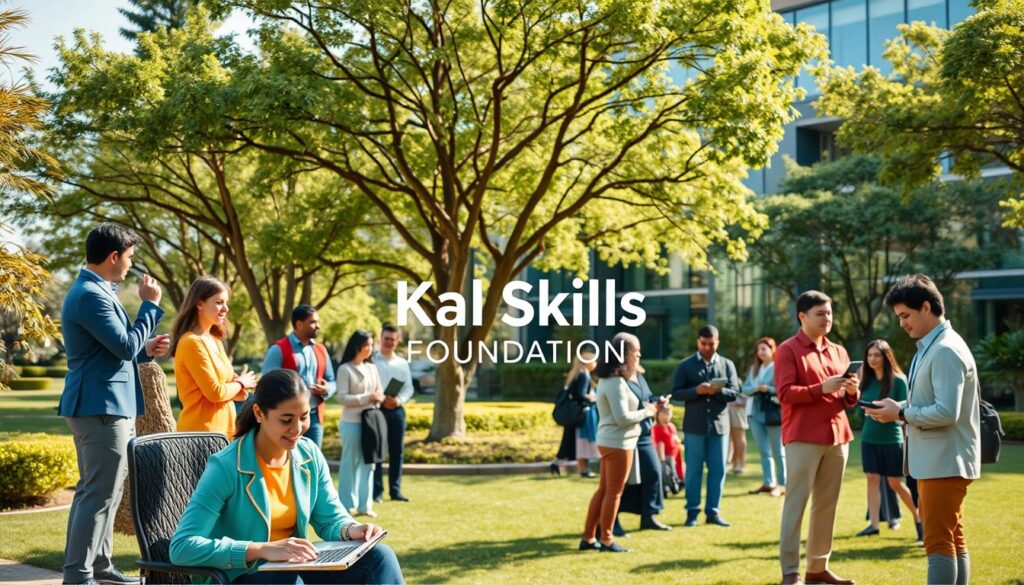
Experiential Learning: Real-World Application of Skills
Experiential learning shows how important practical experience is in learning new skills. By applying what you learn in real situations, you understand theory better and grow a lot. Studies show classrooms with hands-on learning can boost exam scores by up to 6%22.
The NIH BEST initiative shows how experiential learning works in biomedical sciences. It involved nine institutions, offering special experiences for students and scholars23. These experiences include job simulations, site visits, and internships, each with its own goals23.
Internships and fieldwork let you use what you’ve learned in real places like labs or dig sites. These experiences not only improve your skills but also show your strengths. For example, apprenticeships give you a year or two to learn and get a special credential22.
Working on projects and attending workshops gives you learning chances beyond school. These real-world experiences help you connect theory with practice. By diving into these activities, you not only get better at your skills but also prepare for work’s surprises.
Identifying Career Development Opportunities
Finding career development chances is key in today’s fast job market. Staying updated with trends and networking can lead to new paths. A study shows 70% of workers value these opportunities for job happiness24.
Having a career plan can boost your performance, with 85% of employees believing it helps24. Companies that invest in growth see a 34% lower turnover rate24. This shows the value of these chances for both workers and companies.
Mentorship can increase promotion chances by 55%, making it crucial to find mentors24. Working on diverse projects can boost engagement and productivity by 46%24. This highlights the benefits of exploring different career paths.
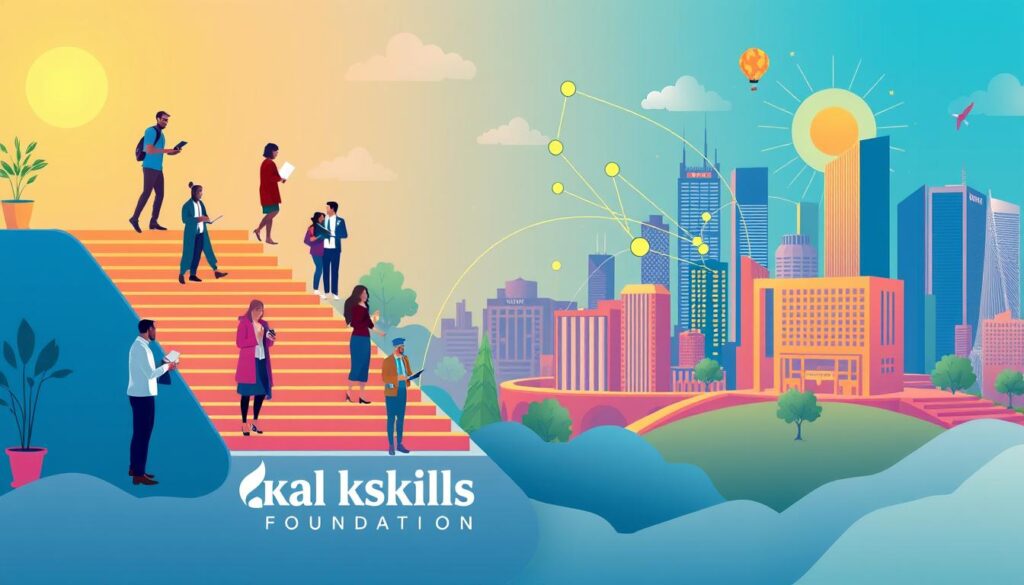
Training and development can keep employees, with 80% more likely to stay24. Career coaching can make you 30% more motivated24. Managerial training can also improve retention by 40% in companies that train internally24.
Regular self-assessments can improve job performance by 20%24. It’s important to include soft skills in your career plan. They are vital for success and in demand by employers2526.
Harnessing Soft Skills for Career Success
Soft skills are key to success in today’s job market. Skills like communication, teamwork, and being flexible are as important as technical skills. Good communication helps avoid misunderstandings that can harm team work27.
Listening well also builds strong relationships and prevents future problems27.
Working well with others creates a positive work place. It brings in new ideas and solves problems better28. With more people working from home, being flexible is crucial. It helps you handle changing work situations and new tasks.
Being good at managing time shows you’re reliable and helps your team work better27.
Emotional intelligence (EI) plays a big role in soft skills like talking and solving conflicts. It helps you understand and connect with others, making work relationships stronger28. As leadership needs grow, having soft skills sets you apart. This is especially true when technical skills are similar28.
Spending time on soft skills is more than just adding to your technical skills. It’s a smart move to improve your career. Learning and growing in these areas makes you stand out in a world that values teamwork and communication28.
Building Working Skills for Future Challenges
In today’s fast world, it’s key to build working skills for the future. Global companies plan to spend over $380 billion on learning and development soon. This shows how important it is to have good strategies for building skills29.
A survey of over 5,154 professionals shows a shift in how we view skill acquisition. Almost three-quarters of business leaders say new skills are crucial for success in changing work environments30.
The “70/20/10” learning model suggests 70% of learning comes from doing, 20% from others, and 10% from formal classes29. This model helps people learn by doing, preparing them for real work.
Companies that focus on skills see better results. Early adopters of these methods report better business outcomes than those stuck in traditional job roles31. This approach builds a workforce that can handle changes and grow over time.
The job market needs people who can adapt quickly. 73% of business leaders think there will be talent shortages in three years. This makes finding new ways to get skills important31.
On the other side, people want to work for companies that help them grow. 64% are more likely to stay with a company that invests in their skills31.
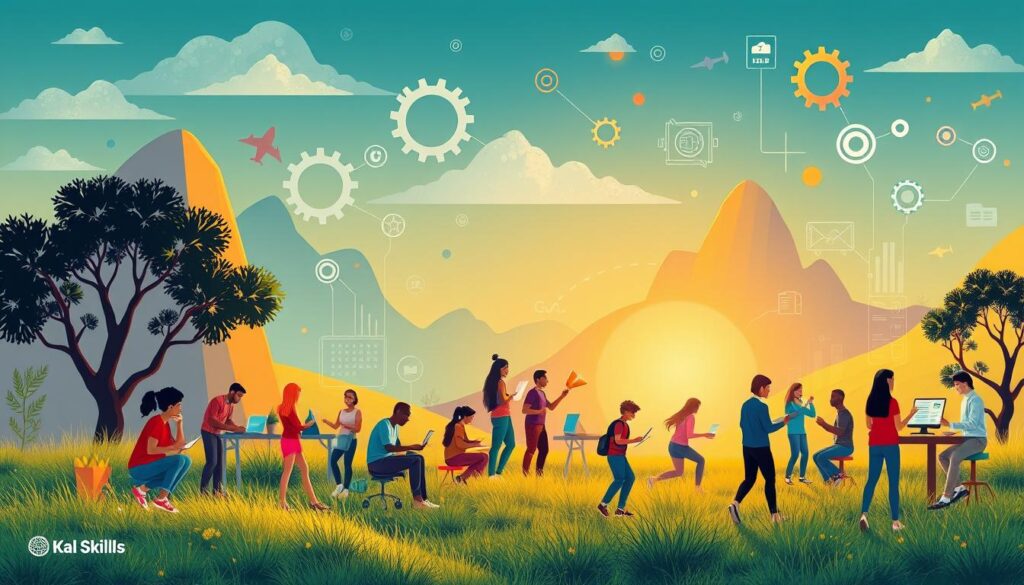
As skills become outdated faster, the need to keep learning is urgent. Adopting skill-building strategies prepares you for the future and leads to a rewarding career.
Monitoring Progress: Self-Assessment Tools
It’s key to track your progress for skill building. Self-assessment tools are crucial for this. They help check your personality, preferences, and abilities through tests and questionnaires32. Using tools like the Myers-Briggs Type Indicator or StrengthsFinder boosts your self-awareness and shows you what to work on32.
To start self-assessment, learn about the tools, set goals, and do activities that make you think33. Use rubrics and checklists to check your progress and skills. This sets a base for growing33.
Self-assessment helps you think deeply and get feedback that’s just for you33. It makes you look at your learning in a new way. This helps you grow and learn more33. Ask yourself what makes you happy or what you must have in a job32.
Understanding your self-assessment results is important for your goals32. Talking to mentors or coaches can give you new insights. Regular checks help you set and track SMART goals, making sure you’re on the right path33.
| Self-Assessment Tool | Purpose | Benefits |
|---|---|---|
| Myers-Briggs Type Indicator | Identifies personality types | Increases self-awareness |
| StrengthsFinder | Highlights individual strengths | Enhances targeted feedback |
| Career Values Scale | Assesses personal values | Clarifies career goals |
| Skills Profiler | Evaluates skill levels | Identifies areas for development |
Make self-assessment a regular part of your learning journey. It leads to ongoing growth and learning for life3332.
Celebrating Achievements on Your Development Journey
Celebrating your achievements is key to keeping your development journey on track. It boosts your motivation to keep reaching for success. Acknowledging your wins, big or small, helps you grow and develop.
Using recognition strategies can really help you move forward. Studies show that programs where peers recognize each other can increase employee engagement by 70%34. Celebrating small victories can also lift your mood and confidence, pushing you to aim for bigger goals35.
Recognizing achievements can also boost team performance. It makes team members feel valued and motivated, helping them avoid burnout during tough times36. Regular recognition, like tracking progress and sharing successes, builds a culture of appreciation and ambition.
Think about writing down your success stories. Sharing them can motivate your colleagues and create a sense of achievement. This aligns with your team’s values and strengthens your bond.
Remember, celebrating your achievements does more than just validate your hard work. It also offers a chance to learn and grow. Each milestone you mark helps you gain valuable insights, improving your skills for the next challenge.
| Celebration Strategy | Impact on Development |
|---|---|
| Structured Recognition Programs | Increases employee engagement by 70%34 |
| Documenting Success Stories | Inspires teams and fosters a culture of learning36 |
| Emphasizing Peer Recognition | Strengthens team dynamics and morale |
| Tracking Progress | Enhances motivation and maintains focus |
Adapting to Change: Continuous Learning in Your Career
In today’s fast-changing job market, adapting quickly is key. Continuous learning is not just a trend; it’s a must for career growth. Studies show that 80 percent of workers value training and development when looking for new jobs37. This highlights the importance of skill-building for job happiness.
Being adaptable is crucial. Staying open to new skills helps you keep up with industry changes. Companies that invest in learning see better retention rates—94 percent of employees want to stay with firms that help them grow37. This also boosts innovation and growth.
Companies that focus on learning stay ahead. They are more competitive and can quickly adapt to changes38. This focus can lead to more opportunities, better pay, and a stronger network.
Many companies face skill gaps, now or soon37. Training helps close these gaps and boosts job satisfaction. For individuals, learning can mean more job security and better performance39.
It’s important to find many ways to keep learning. Look for formal education, online courses, and mentorship. Using both formal and social learning helps you grow and stay adaptable in a changing world.
| Continuous Learning Benefits | Impact on Career |
|---|---|
| Enhanced job security | Greater confidence |
| Higher job satisfaction | Improved performance |
| Stronger professional network | Increased responsibility |
| Higher salary potential | Career advancement |
By making continuous learning a priority, you stay relevant and boost your career success.
Conclusion
The skill building framework is a strong guide for personal growth and career success. It teaches you to improve your skills, which greatly affects your job path. This method helps you develop both hard and soft skills, preparing you for today’s work challenges.
Studies show that companies get more productive and keep employees longer when they focus on training. For example, teams that are well-trained can make up to 21% more profit40. This shows that investing in skill building helps both you and your company succeed.
By adopting a skill building mindset, you can move forward in your career with confidence. You’ll be ready to face new challenges and keep growing professionally41.
FAQ
What is the Skill Building Framework?
How does personal development impact career success?
What are essential skills for personal development?
How can I create a personal development plan?
What is the link between personal and professional development?
What are SMART goals, and why are they important?
What methods can I use for professional development?
What is experiential learning and its benefits?
How can I identify career development opportunities?
Why are soft skills important for career success?
What are working skills, and how do I build them?
How can I monitor my progress in skill-building?
How should I celebrate my achievements?
Why is continuous learning essential for my career?
Source Links
- How To Create a Great Career Progression Framework (+Free Template) – https://www.aihr.com/blog/career-progression-framework/
- A Personal Development Plan (PDP) Guide & Template – https://www.highspeedtraining.co.uk/hub/personal-development-plan-template/
- Why is Personal Development Important? (2024 Guide) – https://personalbrandingblog.com/why-is-personal-development-important/
- Personal Development and Skill-Building: Unleashing Your Potential – https://www.linkedin.com/pulse/personal-development-skill-building-unleashing-your-richard-lawless
- The Importance of Skill Development and Where to Start – https://www.coursera.org/enterprise/articles/importance-of-skill-development
- Why is Professional Development Important? – Professional & Executive Development | Harvard DCE – https://professional.dce.harvard.edu/blog/why-is-professional-development-important/
- 5 Professional Development Opportunities You Should Consider When Advancing Your Career – https://online.hbs.edu/blog/post/professional-development-opportunities
- Professional Development Skills: Empowering Your Workforce – https://www.growthspace.com/post/professional-development-skills
- 10 Emerging Skills for Professionals – Professional & Executive Development | Harvard DCE – https://professional.dce.harvard.edu/blog/10-emerging-skills-for-professionals/
- How to Create a Personal Development Plan: 3 Examples – https://positivepsychology.com/personal-development-plan/
- How to Create a Personal Growth and Professional Development Plan – https://www.snhu.edu/about-us/newsroom/career/personal-development-plan
- How Leadership Development Can Improve Your Personal and Professional Life – https://www.nsls.org/blog/how-leadership-development-can-improve-your-personal-and-professional-life
- Skill Building in the Workplace: An HR’s Guide – https://www.aihr.com/blog/skill-building/
- How Professional Development Can Boost Employee Engagement – https://online.wharton.upenn.edu/blog/how-professional-development-boosts-employee-engagement/
- Taking a skills-based approach to building the future workforce – https://www.mckinsey.com/capabilities/people-and-organizational-performance/our-insights/taking-a-skills-based-approach-to-building-the-future-workforce
- Skill Frameworks: 3 Simple Options to Jumpstart Your Skills Strategy | Degreed Blog – https://blog.degreed.com/skill-frameworks-3-simple-options-to-jumpstart-your-skills-strategy/
- Setting Smart Goals for Professional Development – https://learning.linkedin.com/resources/career-development/smart-goals-professional-development
- How to Use SMART Goals for Training and Development – Cognota – https://cognota.com/blog/smart-goals-for-training-and-development/
- PDF – https://www.ucop.edu/local-human-resources/_files/performance-appraisal/How to write SMART Goals v2.pdf
- 11 Ways to Develop Skills and Knowledge for Work – https://www.mbopartners.com/blog/how-manage-small-business/how-to-keep-your-skills-and-knowledge-current-and-why-it-matters1/
- Top 21 Professional Development Skills | Robert F. Smith – https://robertsmith.com/blog/professional-development-skills/
- 30+ Experiential Learning Activities For The Classroom, Campus & Beyond – https://www.suitable.co/knowledge-center/blog/30-experiential-learning-activities-for-the-classroom-campus-beyond
- Applying Experiential Learning to Career Development Training for Biomedical Graduate Students and Postdocs: Perspectives on Program Development and Design – https://www.ncbi.nlm.nih.gov/pmc/articles/PMC8711830/
- 10 Ways to Improve Employee Career Development – https://www.intoo.com/us/blog/ways-to-help-employees-with-career-development/
- Career Exploration and Skill Development – https://youth.gov/youth-topics/youth-employment/career-exploration-and-skill-development
- Professional Skill Building and Career Development – https://fsw.pressbooks.pub/sls1515/chapter/skills-for-a-career/
- Harness the Power of Soft Skills – https://www.linkedin.com/pulse/harness-power-soft-skills-teamrecruiter-com-ppkwc
- A Guide To Soft Skills – https://www.msicertified.com/blog/soft-skills-the-foundation-of-success-in-the-workplace/
- Help Your Employees Develop the Skills They Really Need – https://hbr.org/2023/10/help-your-employees-develop-the-skills-they-really-need
- How to Use Skills to Build Career Paths for Your Entire Workforce – https://www.linkedin.com/business/talent/blog/learning-and-development/create-career-paths-for-employees-with-skill-building
- The skills-based organization: A new operating model for work and the workforce – https://www2.deloitte.com/us/en/insights/topics/talent/organizational-skill-based-hiring.html
- How do you evaluate your progress using self-assessment tools? – https://www.linkedin.com/advice/0/how-do-you-evaluate-your-progress-using-self-assessment
- Student Self-Assessments: Importance, Benefits, and Implementation – https://info.rcampus.com/blog/2023/06/07/student-self-assessment/
- 10 Ways to Celebrate Success In the Workplace – https://www.thrivesparrow.com/blog/celebrate-success-in-the-workplace
- Why Celebrating Small Wins Matters – Harvard Summer School – https://summer.harvard.edu/blog/why-celebrating-small-wins-matters/
- Powering Up Planning by Celebrating Achievements | Fierce – https://fierceinc.com/powering-up-planning-by-celebrating-achievements/
- What is Continuous Learning and How to Implement It | WorkRamp – https://www.workramp.com/blog/continuous-learning/
- What is Continuous Learning and What are its Benefits? – https://www.techtarget.com/whatis/definition/continuous-learning
- The Importance of Continuous Learning and Development – https://www.shrm.org/membership/students/importance-of-continuous-learning-development
- A Guide To Developing A Successful Skill Strategy | Together Mentoring Software – https://www.togetherplatform.com/blog/a-guide-to-developing-a-successful-skill-strategy
- 10 Conclusions | How People Learn: Brain, Mind, Experience, and School: Expanded Edition – https://nap.nationalacademies.org/read/9853/chapter/15
